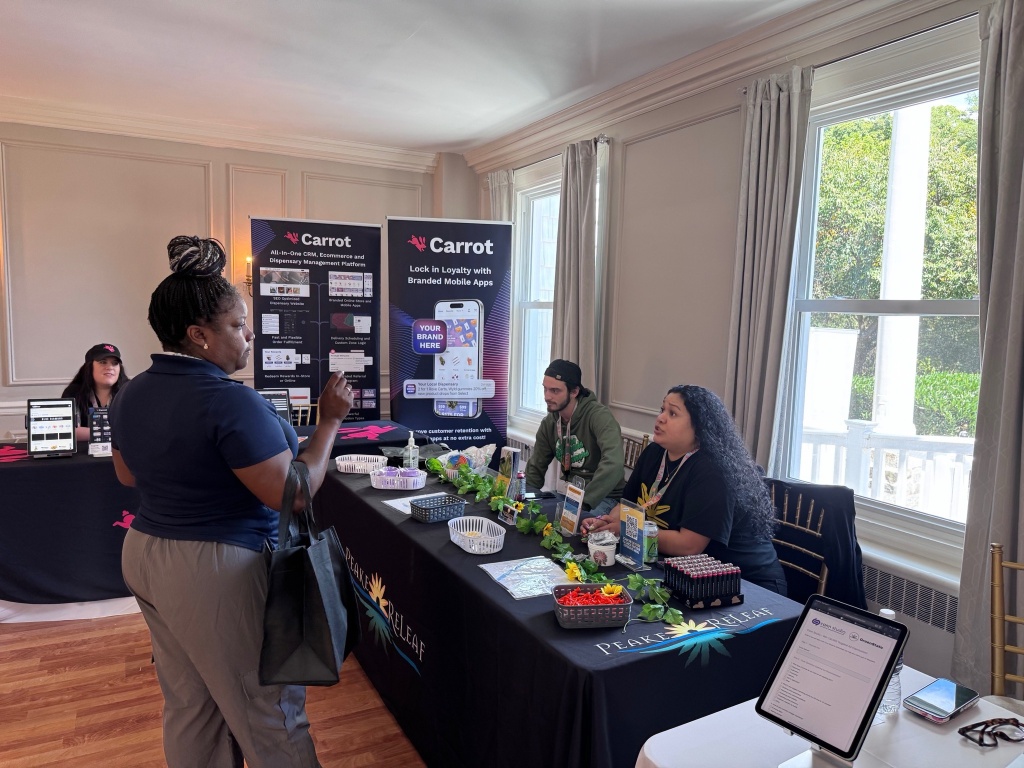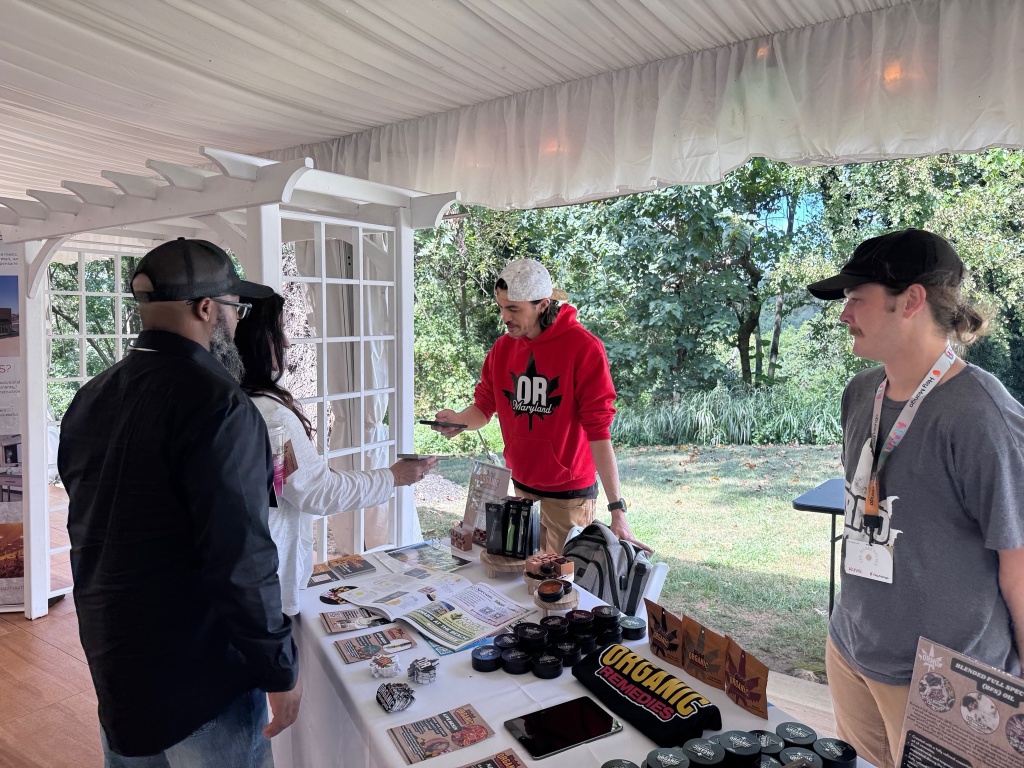Building an ecosystem: Maryland Marketplace unites cannabis community

When states legalize cannabis, the hard work of rolling out a new marketplace begins. The process is often fraught, as newly minted licensees navigate red tape, seek outside investment, and establish relationships with service providers. While the journey can be overwhelming, one group of founders aims to simplify the process of building a cannabis business.
This week’s Maryland Marketplace event, held outside Baltimore, was specifically curated with success in mind. The day-long gathering was organized by cannabis industry entrepreneurs who understand the headaches that come along with being founders in the space. The goal? Remove barriers and unite the community for the greater good.
RELATED: Going into the weed business? Read this
The event featured a number of ancillary businesses and cannabis brands activating at a historic mansion. Fireside chats covered everything from marketing to tech. Attendees could vet potential partners and learn from folks who have helped roll-outs in other markets.
“Ultimately, we were focused on creating an ecosystem,” explained Carlo Manabat, one of the organizers.

A tech founder himself (Manabat is behind the Kuya platform), the executive and his cohort understand the unique challenges of the cannabis industry. With so much competition and a scarcity mindset, Manabat and the other organizers sought to build an environment that focuses on collaboration over competition.
“Full cycle is another term we think,” he told GreenState. “It’s not just come here and find somebody that’s a lead. [Instead], provide value to each other, and ultimately, make a stronger industry.”
Munir Haque, president of cannabis tech company Cure8, echoed Manabat’s sentiments. A partner of the event, Haque told GreenState that each individual state and licensee matters in the broader conversation around cannabis.
“We’re all contributing to a bigger picture; we want cannabis to be successful,” he said. “All of us are here because we believe in this plant and we believe what it can do.”
RELATED: This glaring cannabis safety issue can’t be ignored
“We all just want to succeed…”
Maryland began sales of adult-use cannabis in July 2023. Since then, establishing a recreational market alongside medical has been somewhat shaky. High fees for medical operators to transition to adult-use and a short supply of product were part of the problem.
Part of the legalization law also included a social equity program, designed to help those disproportionately affected by prohibition gain a foothold in the industry. The state awarded 174 social equity licenses in 2024, but the rollout faced significant delays. A new licensing round is currently underway.
Andres Gonzalez and Juan Lopez began the social equity process over two years ago. Right before arriving at Maryland Marketplace, they got the keys to the space that will soon become their Latino-focused dispensary, Chronic Corners.
“It’s really awesome,” Gonzalez said. “It’s like the lights at the end of the tunnel, and it’s slowly, slowly starting to happen.”
RELATED: Lawsuit pits cannabis against hemp yet again
Rahsaan Peak, senior advisor for the Maryland Office of Social Equity, spoke at the Maryland Marketplace event. He acknowledged that many social equity licensees in the state have faced challenges, but that gatherings like this are crucial to achieving sustainable growth.
“Everyone walks out more confident and more engaged in this community at a high level,” Peak told GreenState. “For these [events] that are really focused on the industry and the participants, I think it’s extremely helpful, and will have value over the long term.”

Gonzalez confirmed Peak’s assertion, noting that events like the Maryland Marketplace provide a foundation for not just his business, but the entire industry.
“A lot of this [process] has been very tough, but one thing that has been very helpful is this community; everyone really has been, from what we’ve experienced, looking out for each other. Instead of it being like a cutthroat kind of environment, we all just want to succeed.”
